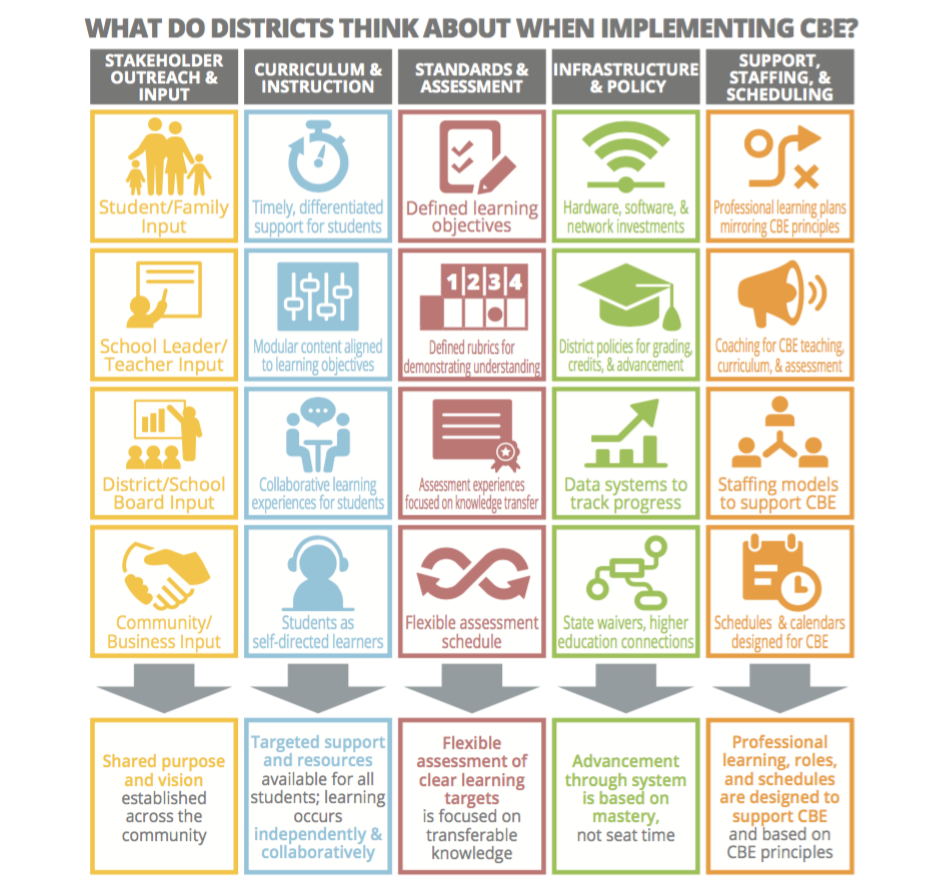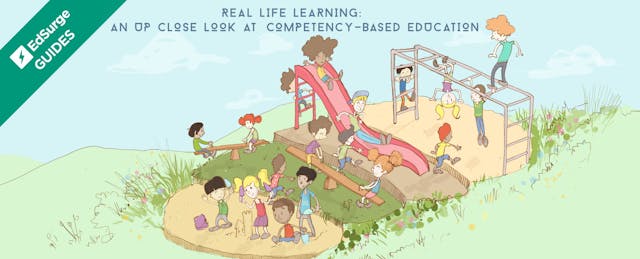Coined in the 1970s, competency-based learning is gaining converts and building enthusiasm in our K-12 education system, taking the focus off grades and seat time—and replacing it with an emphasis on students’ mastery of specific concepts and skills.
Not surprisingly, as interest in CBE grows, so do questions—about exactly what the approach looks like in practice as well as how its successes are measured. So we’ve created this guide exploring CBE, its practice, policy and the role of technology.
In the articles below, we walk you through where there’s consensus, and where there's not. We outline the many kinds of assessments CBE teachers employ—from formative to summative to those anchored in real world learning. We’ve also got stories about schools that have ditched grades, classrooms that have eliminated grade levels, and rubrics created to measure the mastery of soft skills like grit and growth mindset.
Stepping back for the macro view, we share which states are actively developing policies around CBE—and which aren’t even on the map. And we highlight the steps schools are taking to communicate the value of CBE to teachers, parents—and even college admissions officers.
Check back soon as we add more articles to this guide. A veteran teacher will share both the inspiration and challenge of helping his state overhaul its high school diploma requirements. And because one of education’s most important roles is to prepare our children for their future, we'll take a look at issues related to equity, and the 21st century competencies that will help move students out of poverty and into the workforce.
—Mary Hossfeld, Guide Editor
Assessment: Moving Beyond Grades
Policy, Practice and the Big Picture
An Implementation Framework
The following infographic, developed by Digital Promise and Education Elements, illustrates an implementation framework for competency-based education.


Putting CBE on the Map

According to CompetencyWorks, at least thirty-six states have revised policies to incorporate aspects of competency-based education.


